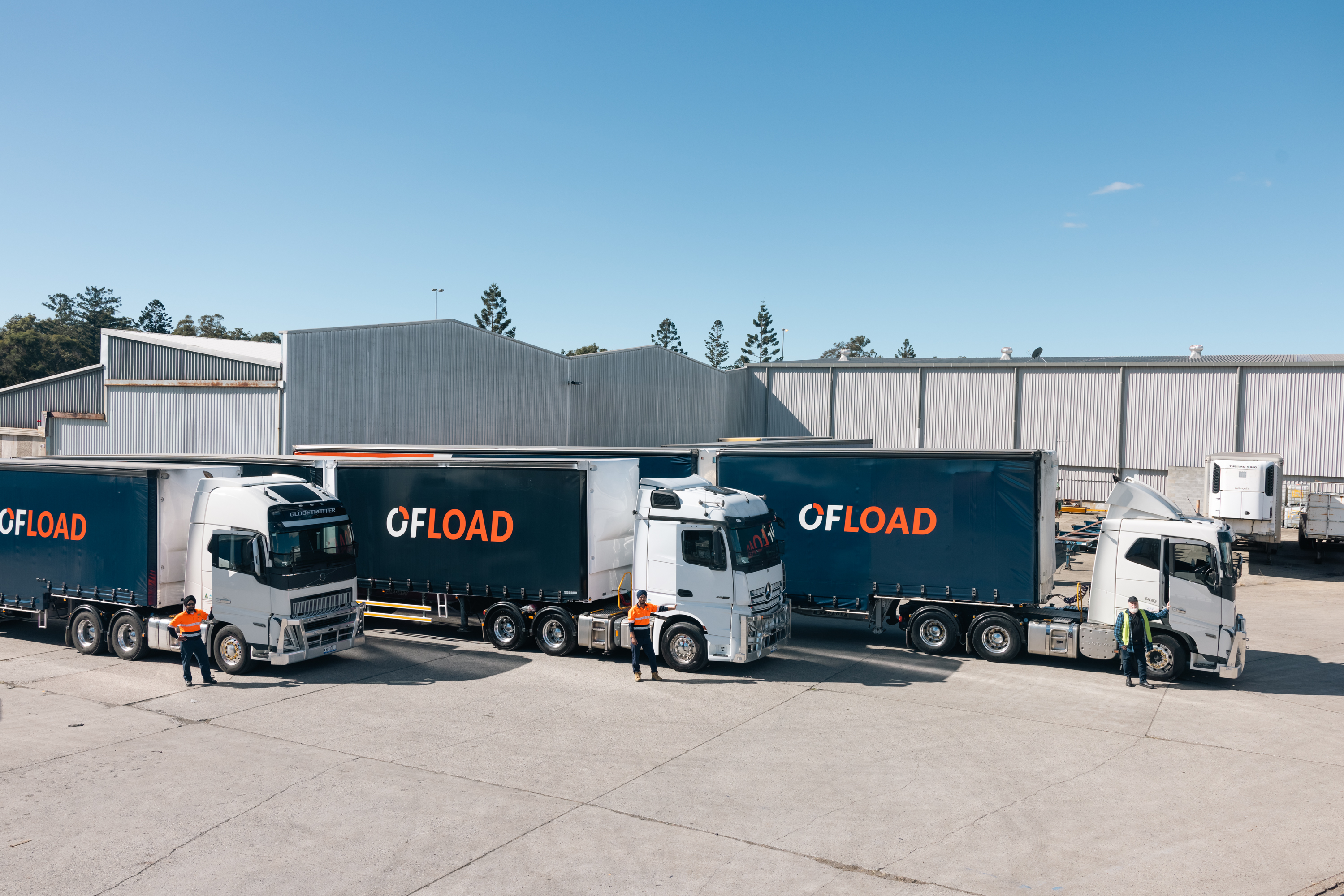Key outcomes
Overview
Ofload is an Australian digital road freight platform provider. To empower shippers and carriers to optimize their operations and make data-driven decisions, the company developed a carbon emissions tracking platform using machine learning on Amazon Web Services (AWS). The platform supports cost prediction, recommendations, and freight consolidation.
By running its new platform on AWS, Ofload’s clients have reduced their carbon emissions by 20 percent through fewer trucks on the road, lowered overall carbon output by 10 percent, and cut the average cost of transport by 15 percent.

About Ofload
Headquartered in Australia, Ofload is a digital road freight company that manages end-to-end logistics fulfillment through technology. The platform connects carriers with shippers, enabling quick and affordable delivery by utilizing what would otherwise be unused space in delivery vehicles. Ofload also provides businesses with visibility into their shipments, ensuring efficient and transparent logistics operations.
Opportunity | Increasing Freight Efficiency Across Australia
Ofload, a digital road freight service provider in Australia, is focused on reducing waste and high carbon emissions in the country’s $66 billion road freight industry. Chris McInnes, chief technology officer at Ofload, explains, “Today, one in three commercial freight trucks on the road is driving empty, and half are only partly loaded. This inefficiency increases carbon emissions, traffic congestion, and unnecessary trips, largely due to the fragmented nature of the industry, where large freight companies operate alongside 56,000 independent truck drivers.”
To address the challenge of underutilized freight, Ofload provides a digital platform that connects shippers with a network of small and medium carriers, facilitating more than 10,000 monthly freight shipments. “Our goal is to enhance freight efficiency and create sustainable supply chains by eliminating waste in the industry,” says McInnes. Running on AWS, the platform aggregates data from small trucking companies, automates bidding for contracted shipment jobs with large grain transporters and manufacturers, and optimizes routes and deliveries.
To enhance its offering, Ofload decided to develop a new carbon emissions tracking tool using machine learning leveraging a Global Logistics Emissions Council (GLEC) Framework/ISO 14083-certified calculation algorithm. “We wanted to build a fully automated solution for companies to measure carbon output throughout their supply chain, using data analytics to assess freight distance, vehicle type and age, load factors, and fuel consumption impacts,” McInnes explains. “To design and implement this platform, we needed the right machine learning and data analytics technology.”
Solution | Building a Carbon Analytics Platform on AWS
Ofload chose to develop its Carbon Analytics Platform on AWS. “AWS has consistently supported startup and scale-up businesses like ours, and their technology and support have been invaluable,” says McInnes.
Ofload utilized a range of AWS services, including Amazon SageMaker for machine learning (ML) models and Amazon Timestream, a scalable, serverless time series database service designed for Internet of Things (IoT) and operational applications. Amazon SageMaker was used to build an ML model for cost prediction. “Accurate cost prediction is essential because we need to forecast the cost of moving freight across different regions with varying pricing models,” McInnes explains.
The platform’s recommendation engine also uses Amazon SageMaker, which aggregates data from IoT tracking devices on trucks, providing real-time load visibility and determining the optimal type of truck for each job. Additionally, Amazon SageMaker powers a freight consolidation model that calculates the most efficient route and the best way to load and consolidate freight. To handle scalable data analytics, the platform integrates Amazon Redshift.
Following a successful proof of concept both internally and with selected customers, Ofload transitioned its Carbon Analytics Platform into full production. The platform complies with the GLEC Framework, ensuring standardized reporting of logistics emissions. So far, it has measured carbon output for companies moving goods over more than 25 million kilometers of road freight.
Outcome | Helping Freight Shippers and Carriers Reduce Emissions and Cut Costs
By implementing the Carbon Analytics Platform on AWS, freight shippers and carriers are achieving greater operational efficiencies. For example, shipping customers like Amazon now benefit from enhanced transparency and visibility into their freight’s location through IoT devices, which help accurately predict specific freight arrival times.
Carriers using the platform can also optimize truck usage, helping drivers access more jobs and manage truck loads more efficiently across Australia. McInnes explains, “If a truck is driving from Melbourne to Brisbane with a 12-pallet load but has capacity for 18 pallets, our platform can route the truck to pick up an additional six pallets along the way, maximizing efficiency.”
The platform’s automatic route optimization and load consolidation capabilities are also helping Ofload customers reduce carbon emissions. “Our AWS-based platform tracks freight movement, including truck type, distance traveled, and freight dimensions and weight,” McInnes explains. “We then use this data to calculate the true carbon emissions of each freight movement.”
For example, one major trucking company has reduced its number of trucks on the road by 20 percent, significantly lowering emissions. Another Ofload customer has cut its carbon output by 10 percent using the platform, while the load consolidation features have helped customers lower their average cost of transport by 15 percent.
Ofload plans to continue expanding its use of ML. The company is looking to integrate additional AWS services, such as Amazon Textract to automatically convert text from proof-of-delivery documents snapped in the Ofload mobile app. “Our business is constantly evolving and we’re now in the scale-up phase, automating every touchpoint of a shipment,” says McInnes. “We’re excited to continue using AWS to help us achieve our vision of zero waste in the road freight industry.”

Our AWS-based platform tracks freight movement, including truck type, distance traveled, and freight dimensions and weight. We then use this data to calculate the true carbon emissions of each freight movement.
Chris McInnes
Chief Technology Officer at OfloadAWS Services Used
Did you find what you were looking for today?
Let us know so we can improve the quality of the content on our pages